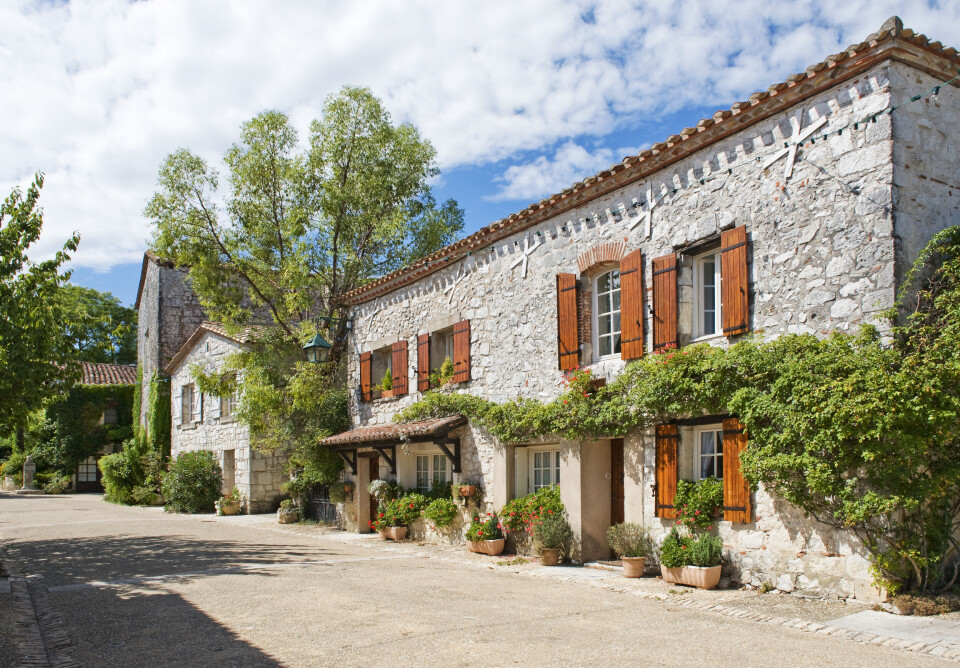-
Do I need separate caravan insurance in France?
Fixed and mobile models have different rules and coverage
-
Can EU citizens get French identity cards?
French-issued ID can be useful for some administrative procedures
-
Can you offer rentals in France when staying on visitor visa?
There are different thresholds for rentals before they are deemed as ‘professional income’
Who still has to pay the taxe d’habitation in France in 2022?
Further reductions come in this year for those main home owners who will still have to pay

Reader question: I am confused at whether I still need to pay taxe d'habitation for my main residence in France. I read online that some households don't have to pay anymore, could you enlighten me?
The gradual phasing out of France’s residents’ tax (taxe d’habitation) for owners of main residences continues this year, with a 65% reduction for those who still have to pay it.
Currently, the taxe d’habitation only applies to main residences for the top highest-earning 20% of households.
Last year, this group of people saw the cost of the tax cut by 30%, and it will now be reduced by a further 35% to make a total 65% reduction this year.
In 2023, no household will pay any taxe d’habitation on their main residence.
Second-home owners will still be subject to the tax.
Those who do still have to pay the taxe d’habitation will be billed according to the property that they owned, rented or occupied on January 1 of the year in question.
For the purposes of tax in France and to ensure larger families gain more tax benefit, people are seen as “units” (‘parts’ in French), with each adult counting as one unit and minors as half a unit.
This means the cap is the same for two adults (two units) as for an adult with two children (one unit and two half units), for example.
If your household income exceeds the limits stated below, you still have to pay the taxe d’habitation:
-
€27,761 for 1 unit
-
€35,986 for 1.5 units
-
€44,211 for 2 units
-
€50,380 for 2.5 units
-
€56,549 for 3 units
-
€62,718 for 3.5 units
If you are only just slightly over the threshold, you may benefit from some exemptions.
Reforms over the past three years are as follows:
-
In 2020, the taxe d'habitation was abolished for 80% of main households
-
In 2021, the 20% remaining higher income households received a 30% reduction
-
In 2022, this same 20% of households will benefit from a 65% reduction.
Do second-home owners have to pay taxe d’habitation?
Yes. There are no plans to reduce or phase out the taxe d’habitation for second homes.
The income exemptions above only apply for main residences – second home owners still have to pay taxe d’habitation in full this year, and will need to for the foreseeable future.
People with second homes in a zone tendue (an area with housing shortages) may even face rising taxe d’habitation rates as is the case in Paris, Bordeaux or Nice where local officials have increased their part of the rate calculation of the tax by up to 60%, the maximum legally allowed.
How much will taxe d’habitation cost this year?
It depends on your income and household size, but in 2020, financial website Tout sur mes finances estimated that the average bill was €326.
However, the number varies considerably by city; in 2019, the average bill was €577 in Paris and €676 in Bordeaux.
How can I challenge a taxe d’habitation bill?
You can email your tax office - the email address should be on your tax bill.
You can also go to the website, impots.gouv.fr and make a ‘reclamation sur le revenu’ via the section ‘effectuer une démarche’.
You can also visit the tax office (ask a good French speaker to go for you [Covid rules notwithstanding] if need be).
After that, you may need to send a formal letter by recorded post and request a confirmation that the letter has been received. The “conciliateur fiscal”, a section of the tax office, may then rule in your favour if you have explained why you should not need to pay the tax.
Getting a reprieve on a tax bill is called a dégrèvement.
You may find it less stressful to pay the bill to avoid late penalties, and then complete the administration to claim the difference back.
When should I pay taxe d’habitation?
Deadlines for payment are usually in November or December, with the exact date depending on how you pay and whether you are paying for your main or second home.
Related articles
Who has to pay 'taxe d'habitation' in France?
What is meant in French law by 'moveable' or 'immoveable property'?
























